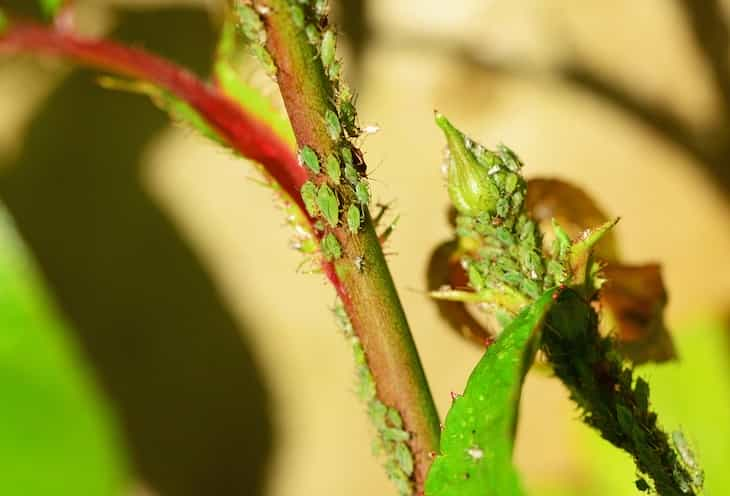Roses are one of the most beautiful flowers, but some pests like aphids can easily destroy them.
Luckily, there are a few ways to get rid of these pests, or even prevent them from damaging your flowers.
Here are some tips you can use.

Water Spray
Use a strong water spray from a hose to wash off the aphids. This can help remove them from the rose plants.
Soapy Water Solution
Mix a solution of water and a few drops of dish soap. Spray it on the affected roses. The soapy water can suffocate the aphids.
Pruning
Prune the affected parts of the rose plant. Remove the leaves and buds where aphids are clustered. Dispose of the pruned parts away from the garden.
Beneficial Insects
Introduce beneficial insects like ladybugs or lacewings to your garden. They feed on aphids and can help control their population.
Neem Oil
Apply neem oil to the roses. Neem oil is a natural pesticide that can disrupt the life cycle of aphids and prevent them from feeding.
Garlic Spray
Create a garlic spray by crushing garlic cloves and mixing them with water. Spray this solution on the roses as aphids dislike the smell.
Diatomaceous Earth
Sprinkle food-grade diatomaceous earth around the base of the rose plants. This powder can deter and dehydrate aphids.
Companion Planting
Plant companion plants like marigolds or nasturtiums near your roses. These plants can repel aphids.
Regular Inspection
Regularly inspect your roses for signs of aphids. Early detection allows for prompt action before the infestation worsens.
Organic Insecticidal Soap
If needed, use an organic insecticidal soap specifically designed for plants. Follow the instructions on the product for safe application.
Previously, we talked about growing cineraria.











